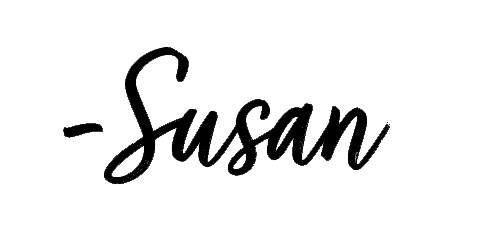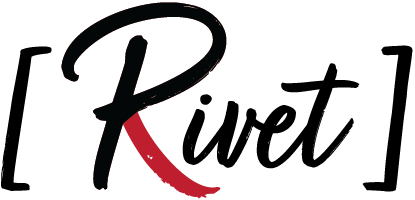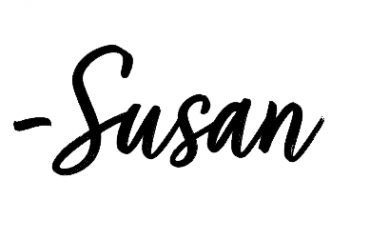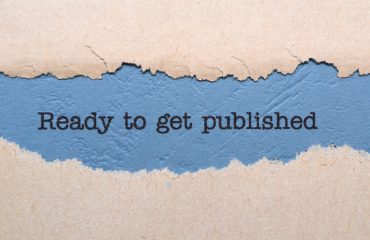
Every day, I read numerous blogs and helpful articles on a wide variety of topics. This research helps me form online content for my business clients. But, unfortunately, too much fluff occupies most articles, and it takes significant time to get to the facts I need to know.
If you have ever looked up a recipe on Pinterest, you will know that you usually scroll through a few pages of a story before you get to the recipe unless you hit the “jump to recipe” button. Padding an article with non-essential words is so frustrating for me that I will go ahead and jump to the facts of this week’s blog post and keep it as concise and informative as possible.
In this article, I will answer the following questions:
1. What is proofreading?
2. Why hire a professional proofreading service?
3. How do I work with a proofreading service?
4. What do I need to look for when hiring a professional proofreader?
What is Proofreading?
Think back to high school when you learned to write a research paper. You started with researching facts and wrote them down, possibly on 3×5 notecards. You then graduated to writing an outline, followed by a first draft, second draft, third draft and endless drafts. I had to think back on whether I even turned in a final paper or just stayed forever in draft land.
When you hire a professional proofreading service, you are turning in your FINAL draft. The proofreader then looks for any mistakes you might have missed in spelling, punctuation, grammar and formatting. After reviewing your content, it should be clean of any errors, it should make sense to the readers and the content should be ready to publish.
A professional proofreader offers more than spell checker software such as Microsoft Word or Grammarly. Do not get me wrong. I love these spell checker tools and use them multiple times a day; however, they do not catch all mistakes. For example, the clarity of the message, nuances in brand identity, or commonly misused words and phrases such as homophones and idioms are errors spell-checking software usually miss.
Besides grammar, spelling, punctuation and basic formatting, a professional proofreader may also offer additional services such as:
- Fact Checking-Making certain dates, times, people and ideas are accurate.
- Plagiarism– Often unintended, plagiarism commonly occurs when the content’s topic has been covered several times by other writers.
- Sensitivity– A professional sensitivity reader looks to see if the writing appropriately represents the characters portrayed and the intended audience. This service usually applies to marginalized or underrepresented groups but could also apply to any activity or group of people the writer is unfamiliar with. For example, if you are writing a piece about a particular hobby such as gardening, but you do not garden, you may employ a sensitivity reader to make sure you are using the names of plants and the appropriate gardening idioms.
- Advanced Formatting—Detailed work such as page numbering and proper indentations that go beyond basic formatting, such as making certain font sizes and margin settings are consistent and correct, and graphics and pictures are aligned.
Why Hire a Professional Proofreading Service?
Publishing content that contains errors puts your professional reputation and your brand integrity at risk. It does not matter if the content is a short ad, newsletter, email or blog post. Consumers become less trustful of your content when the message is not clean and clear. Hiring a professional proofreader will ensure your messages and content are error-free and understandable.
Proofreading should be an integrated part of your marketing strategy. Besides your integrity and professional image, hiring a proofreader saves time and money. A proofreader takes the burden and worry of putting out timely and professional content. Usually, a company asks existing employees to proofread in-house created material. However, these employees are generally not trained in proofreading, do not like proofreading, put off the task or take too much time proofreading instead of the actual job they are employed to do. It will also cost a company more time and money to fix published content that contains errors.
In my opinion, I believe the top reasons most business clients hire me for proofreading are:
- They do not have time to proofread but know it is essential to maintain their professional reputation.
- They do not like to spend time proofreading but hire me because they know I love it.
- They are too close to their writing to see any mistakes, and I offer a fresh pair of detailed eyes to catch errors.
- They are not familiar with most spelling, grammar and punctuation rules.
I believe most author clients hire me for proofreading because:
- They are too close to their material and cannot see their errors and mistakes.
- They have spent too much time writing, are completely exhausted with the writing process and do not want to spend time proofreading.
- They are worried about their professional reputation. Authors want to make sure their writing is error-free to enjoy the reading and not get stopped by a small error. The author also wants return readers and positive reviews.
How do I work with a proofreading service?
Integrate a professional proofreader into the business and marketing strategy as much as possible. Hired proofreaders should be introduced to the staff and communicate the role the proofreader will have. The purpose of a proofreader is not to change the employee’s content significantly, just a helpful hand to catch any errors.
Many proofreaders, including myself, work remotely and integrate their proofreading service within the client’s software sharing program. A simple email with an attachment works for most proofreaders when a business does not have software sharing programs.
Typically, proofreaders like to work with software where they can directly make changes on the document. For example, in Microsoft Word and Google Docs, changes can be made directly on the document if permission is given to the proofreader by the document owner. In other formats, such as a pdf file, changing text and formatting is more complicated. In this case, proofreaders can purchase pdf editing software or communicate their suggested changes in an email.
At first, you may think proofreading should be the slowest step in the content creation process since a professional proofreader needs time combing through the writing to catch all mistakes. However, a professional proofreader should be able to work within the time constraints of your business. A good proofreader understands deliverables and timelines and should meet those deadlines just as if they were a part of the working team.
Turnaround time usually depends on the subject matter and word count. If you hire an experienced and trained proofreader, that person should have enough education and experience to quickly identify any errors in clarity, brand image, grammar, punctuation or formatting. The bottom line is that a proofreader should not slow down the process.
When hiring a professional proofreader, be sure to outline the number of revisions you are requesting. Proofreaders are used to receiving a final draft, where the writer has caught most errors. However, writers often submit content that needs significant changes and multiple reviews in a rush to create and publish content.
A proofreader may have a limited number of revisions in their contracts to ensure you are putting out clean and professional content and not relying on the proofreader to rewrite the material. If you are looking for this level of work, you should investigate hiring an editor or content writer.
What Do I Need to Look for When Hiring a Professional Proofreader?
When looking to hire a proofreader, hire a person with an excellent grasp of the language you are writing for. Native language speakers are the best. Secondly, hire a person with a Journalism or English degree (which includes literature concentrations). Candidates with an editing certificate are also good options.
Some employers require a proofreading test before hiring a professional proofreader. Although I believe these tests can prove whether or not the candidate has skills, I think you can identify these qualifications from the resume and interview. A more effective measure would be to give the candidate a sample of the businesses’ work to see how the proofreader would improve it. Examples provide the candidate a real taste of the work to come and give you and the candidate a true sense of the person’s value. It is not uncommon for proofreaders to offer “sample” edits to authors, so a test or interview with real-life examples is not unusual.
How much to pay for a professional proofreader is always an important question. I believe a proofreading service should not cost you out of hiring the service. Instead, it should be an easily affordable service that should benefit your business. However, going too low on your hiring rate may not get you the quality of work you are looking for or the personal drive from the hired proofreader to do the job correctly.
Beware of average costs posted online, as most of the ones I researched are way below the average price, especially from low-cost contract services. I love being hired on sites such as Fivver because I get to help people on personal, one-time projects, and I feel like I make a meaningful difference. But I do not believe this is the best place to search for long-term proofreaders. An excellent resource for average costs comes from the Editorial Freelancers Association and can be accessed here: https://www.the-efa.org/rates/
The rate you pay will depend upon the type of work, subject of work and word count. For example, legal and academic documents should cost more than a business email. Other factors may require a higher rate. For example, if you are looking for a proofreader who speaks multiple languages or has the industry-specific experience, these specific skills may drive the cost up.
Excellent communication skills are also essential when hiring a proofreader. You not only want to hire someone who can communicate clearly and effectively in writing, but you also want to work with someone with who you get along and interacts well with the team.
Good communication skills also apply to the hiring manager. Be sure to communicate your goals and make sure the proofreading candidate is skilled in your company’s software. Make sure to cover how you want to assign and close tasks and communicate suggested changes the proofreader has.
Find someone who is detail-oriented, caring, and goal-driven. The best attribute you can find in a proofreader and is the golden egg is someone who cares just as much as you do about your work.
Finally, and this may surprise you, hire a human, not a perfectionist. No one is perfect. Even the best proofreader will miss a few errors from time to time.
Final Thoughts
I have several professional services, including proofreading, editing, writing and reviews. Next week I will write about the differences between my proofreading services and editing.
If you are interested in learning more about proofreading, I have included a few great sources that further discuss the subject:
https://www.fiverr.com/resources/guides/writing-and-copywriting/what-is-proofreading
https://blog.reedsy.com/what-is-proofreading/
https://denisecowleeditorial.com/editing-podcast-page-proofs-proofreading-process/
https://meledits.com/how-to-find-a-freelancer-perfect-for-you/
If you are a business or author looking to hire a professional proofreader, please contact me. I would love to tell you more about what I do and how I can make your writing shine.








